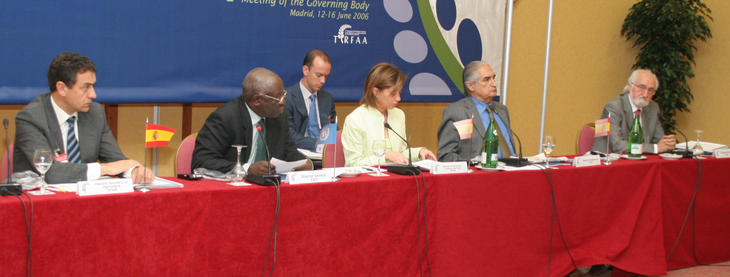
First Session of the Plant Treaty’s Governing Body, Spain, 2006
At the first session of the Plant Treaty’s Governing Body in Madrid in 2006, Norway stressed the importance of Farmers’ Rights, noting that the responsibility for their implementation lay with national governments. Norway was accordingly funding a project, the Farmers’ Rights Project, that focused on how countries could best implement Farmers’ Rights, the need for cooperation in this regard within the framework of the Treaty, and how the Governing Body could support these efforts. The results of the first phase of the project had been presented in a side-event at that first session of the Governing Body. Mindful of the workload that the Secretariat was carrying, and that the first priority of the Treaty was to make the Multilateral System functional, Norway nonetheless requested that follow-up to Article 9, Farmers’ Rights, be considered by the Bureau for possible inclusion in the agenda of the Governing Body’s second session. Many regions supported this proposal, which was addressed in the report from this First Session of the Governing Body.
It was not self-evident that Farmers’ Rights should become an agenda item for the Governing Body, as some delegates argued that their realization were up to the contracting parties, according to Article 9, and thus not a topic for the Governing Body. Counterarguments were that the Governing Body, according to Article 21, is responsible for compliance with all provisions of the Treaty and not only obligations. On this background and with the pressure of regions of the Global South, it was possible to achieve consensus to put Farmers’ Rights on the agenda of the Governing Body at its Second Session.
In preparing for the follow-up of this intervention, the governments of Norway and Zambia together with the Fridtjof Nansen Institute organized the first Informal International Consultations on Farmers’ Rights in Lusaka, Zambia in 2007.
Text by Regine Andersen